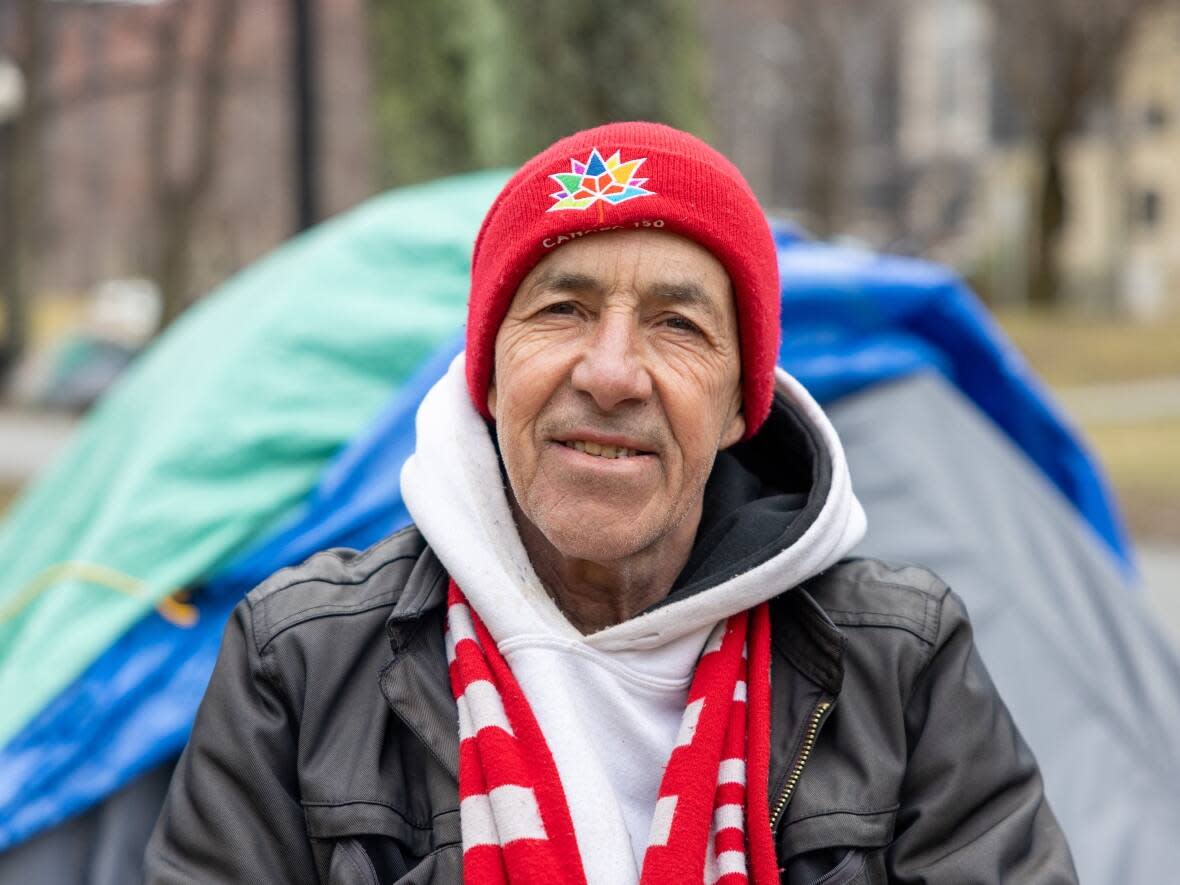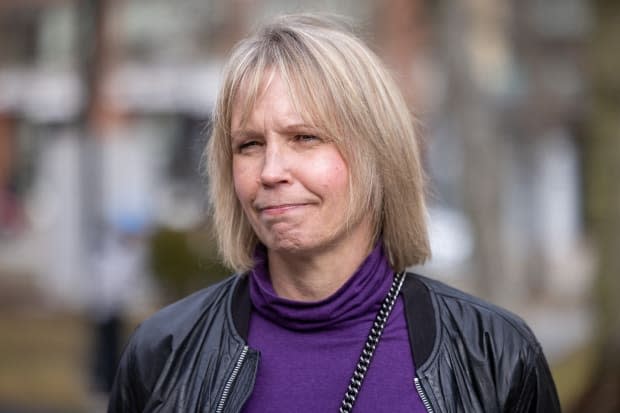Halifax regional council adopts new plan to help growing homeless population

Mike Babineau wants to be seen and treated like a fellow human being — with dignity and his basic needs met.
"We're people just like they are," he said.
Babineau has been sleeping rough in Halifax since November. He came here from Moncton where he said his tent was routinely destroyed or thrown away.
When he heard about the possibility of a permanent, daytime drop-in centre in Halifax Regional Municipality, he was glad the area is looking at adding more supports for the unhoused.
"It's hard and, you know, to have a place where you can go and heat up and have food and coffee and whatnot and maybe shower and wash your clothes. It's great help for people like us."
Halifax regional council accepted a plan Tuesday to further address the crisis facing people experiencing homelessness, including adding utilities to designated sheltering sites and setting up the drop-in centre.
But some advocates — and even the city staff who authored the plan — said it may not be enough to address the growing problem.
The plan, A Framework for Addressing Homelessness, reported 790 people currently experiencing homelessness in HRM, including people in shelters, vehicles and sleeping rough. It said the number of people sleeping rough has increased fivefold in the last four years, from 18 to around 108 people.
Mayor Mike Savage said during council debate that homelessness is the biggest issue facing cities across the country.
"We have to let people know that there is no city if people don't have a place to live in it, and it's our responsibility," he said.

The drop-in centre is one of the largest projects in the plan and would provide daily meals, showers, connections to service providers, and a place to escape the weather, among other supports.
Max Chauvin, director of housing and homelessness for the municipality, told councillors the demand for these day-to-day services is high with one of the non-for-profit showering facilities having a two-week waiting list.
The framework also includes hiring an additional street navigator to connect with people who need help.
Funding will be debated at budget sessions in the spring.
The municipality will need to more than double its current budget for homelessness initiatives just to maintain the current level of service. Staff estimate the cost of the new initiatives would be close to $800,000 on top of existing funding, and funding for the new street navigator position will be considered separately.
Councillors reiterated their frustration with lack of provincial funding to address the crisis and will only fund the drop-in centre if the province agrees to split the cost.
Chauvin told councillors rates of unhoused people are increasing so rapidly, the new plan may not be enough to meet soaring needs.
And if the provincial rent cap is allowed to expire at the end of this year, Chauvin said HRM could have an added 500 to 1,000 unhoused people within months.

'Worse before it gets better'
A committee of people who have experienced homelessness and multiple service providers were consulted for the framework, including United Way Halifax.
Sue LaPierre, director of social impact strategy with the organization, said she was glad to see the consultation in the framework and feels it's a good step forward. Still, there's more that needs to be done.
"I think there's always more room to go because the problems are huge, and we're not keeping pace yet," said LaPierre.
She said the rapid increase of unhoused people she's seen in HRM is due in large part to lack of affordable and non-profit housing. Many people are priced-out of housing that's on the market, she said, but building up affordable housing stock takes time.
"It's going to get worse before it gets better," she said. "We have to do this now, and we have to keep looking for other solutions as well."


